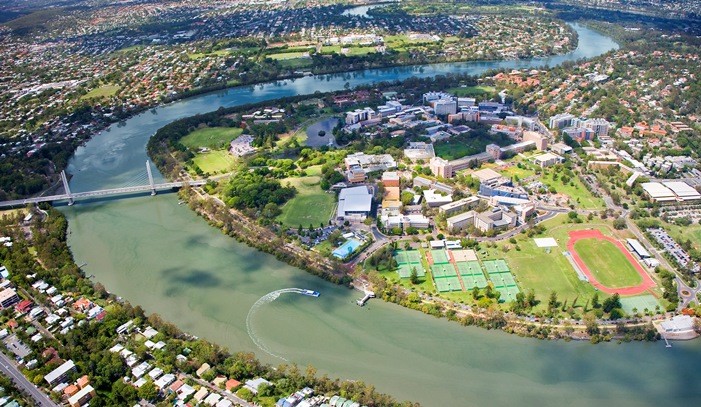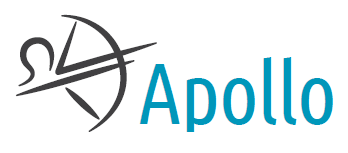Course detail
Instructor
About this course
Course syllabus
Course format
Recommended Background
Recommended Texts
Related Courses
Venues
Accommodation
Car Parking / Transport
Venue and Timetable
This 2-day masterclass provides participants with an introduction to applied choice modelling using the Apollo software. Apollo is open-source software for estimating choice models available in the R computing environment. The master-class will focus on hands-on exercises using the open-source Apollo software for the estimation of choice models.
This course is being hosted in-person at the University of Queensland's Business School at the St Lucia Campus, Brisbane.
This course is preceded by the Fundamentals of Choice Modelling Master-class on May 29-30, also in-person at UQ's St Lucia campus.
Choice modelling is one the core methods of the applied economic sciences, including environmental, health, and transport economics.
This 2-day masterclass provides participants with an introduction to applied choice modelling using the Apollo software. Apollo is open-source software for estimating choice models available in the R computing environment. The master-class will focus on hands-on exercises using the open-source Apollo software for the estimation of choice models.
Stephane Hess is Professor of Choice Modelling and Director of the Choice Modelling Centre at The University of Leeds (UK). Stephane is a globally recognised leader in choice modelling with interests in behavioural models, travel behaviour, health choices, and decision making. His specific academic contributions include developing advanced choice models and empirical contributions across many fields. He is the editor of the Journal of Choice Modelling (the leading international, interdisciplinary journal in choice modelling), the chair of the International Choice Modelling Conference, and co-developer of Apollo (with David Palma, Leeds, UK), a widely used (open-source) estimation software for choice models.
This is a lab-based masterclass introducing students to the use of the Apollo software. The masterclass will be applied and place its emphasis on the implementation of the methods and models used by choice modellers and on the analysis and interpretation of choice modelling results; links to choice modelling theory will be made, but this is not the emphasis of the course.
The masterclass will introduce participants to the software and to the family of choice models estimable within Apollo. The focus will be “hands-on” exercises and estimating choice models using Apollo with data provided by the instructor. The masterclass will place particular emphasis on model estimation and interpretation. The exercises will span a range of application areas including environmental, health, and transport economics.
The target audience is primarily an academic one including university researchers, PhD students, and applied researchers from government agencies and departments.
Day 1
- Introduction to choice modelling in Apollo
- Estimation of multinomial logit and specification testing
- Analysis and interpretation of results
- Demand forecasting
Day 2
- Estimation of models with flexible error structures in Apollo
- Nested logit and mixed logit estimation
- Latent class models
- Hybrid Choice models
This is a lab-based masterclass. Participants will need to bring their own laptops.
Participants are encouraged to install the R software on their laptops before starting the masterclass.
Participants will require a priori knowledge of choice modelling theory.
It is recommended that this includes all the topics covered in the masterclass on choice modelling theory, Fundamentals of Choice Modelling.
There is no requirement for previous experience using R.
Note the 2-day masterclass, Fundamentals of Choice Modelling, will be offered immediately before this applied course (May 29-30 at UQ).
Hess, Stephane and David Palma (2019), “Apollo: A Flexible, Powerful and Customisable Freeware Package for Choice Model Estimation and Application, Journal of Choice Modelling, 32 (September).
Hess, Stephane and David Palma (2022), Apollo Version 0.2.8: User Manual. www.ApolloChoiceModelling.com.

On campus accommodation may be available at UQ through some of the colleges. Not all of them offer accommodation during Semester breaks, so it is best to contact them directly. This is a link to a UQ web page that will link you to their websites. Many of them will have links to 'conference' or casual accomodation.
https://my.uq.edu.au/student-support/accommodation/uq-residential-colleges
Other Accommodation options
There are several other options in suburbs around the campus, St Lucia, Toowong and West End, which are connected to UQ by the CityCat river ferry and several bus services. Toowong is also only a few minutes from the city by train. A web search of 'St Lucia accommodation Brisbane' should provide you with some options. It is also possible to stay in the CBD and enjoy a reasonable commute, particularly if staying close to a CityCat (river ferry) stop or near Roma St Station (bus). Follow this link for information about getting to the St Lucia campus.
Otherwise you may be able to find a room or apartment via Airbnb or one of the many accommodation aggregator sites like www.wotif.com or www.lastminute.com. Just type in the suburb of St Lucia.
This is a link to UQ's information page about the various ways to get to the St Lucia Campus.
Ferry
The Brisbane City Council (CityCat) ferry service operates between the city (and beyond) and St Lucia. The ferry is a pleasant way to travel to campus and is also an effective way of commuting from areas such as Toowong and the city. The ferry stop at UQ is only a short walk from the Business School Precinct, where most ACSPRI courses will be run.
The latest updates on the ferry service can be found through http://jp.translink.com.au/travel-information/network-information/ferries/T/citycat
Bus
Brisbane City Council buses stopping at UQ take you to one of two bus terminals. One is at Chancellor's Place (near the J. D. Story Building). The second terminal is at "UQ Lakes", at the far east of the campus near Playing field 3, which is at the UQ end of the Eleanor Schonell Bridge. A journey planner is available at this link.
Bicycle
The University of Queensland (St Lucia) is ideally accessed by bicycle, with a safe riverside bicycle path connecting St Lucia campus to the city. You can follow the roads or use combinations of roads and bike paths. Remember too, that bikes may be taken on City Cat river ferries. There is a University Bicycle Shop in the St Lucia Campus Union Complex and bike parking facilities are available.
Taxi
Taxi ranks are located on the roundabout at Chancellors Place, and in University Drive, at St Lucia Campus.
Car Parking
Parking can be difficult to find on campus during the semester when classes are in session.
Paid parking operates on the St Lucia campus from 7:00am to 9:00pm every weekday.
Please follow this link for details about casual parking at the St Lucia Campus, including maps showing car park locations, zones, parking conditions & signs.
At St Lucia, there are two ways to pay for casual parking: CellOPark and Pay by Plate. Signs located in each zone have information on how to register for CellOPark, or pay using the Pay by Plate machines. This link explaining how these systems work.
ACSPRI accepts no responsibility for organising parking or parking fines incurred by program participants.

